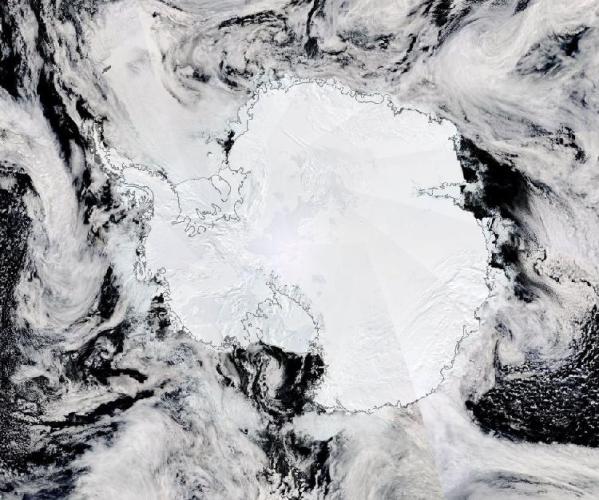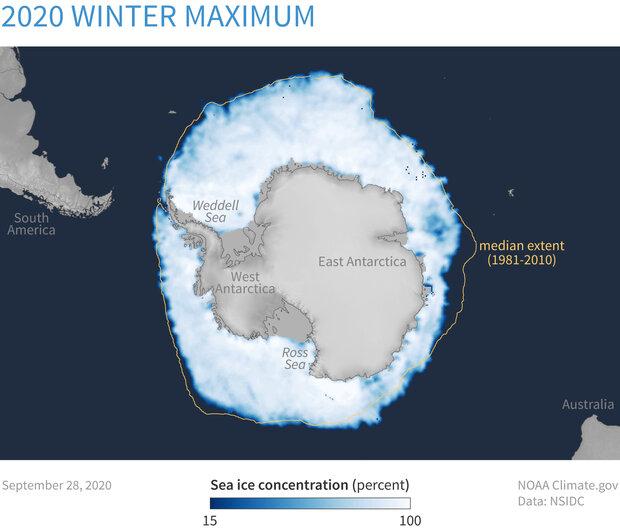
Science Café features Ryan Fogt discussing 'Recent Extreme Antarctic Sea Ice Decline' on Oct. 11

Ohio University's Science Café presents Ryan Fogt discussing "Recent Extreme Antarctic Sea Ice Decline in a 20th Century Historical Context" on Wednesday, Oct. 11, at 5 p.m. at the Baker Center Front Room on the fourth floor of Baker University Center and via YouTube.
Antarctic sea ice has been setting new record lows all throughout 2023, far below anything ever seen in past observations. Yet, these critical observations are short – with records going back only about 45 years.

Fogt will discuss these new alarming records in light of historical reconstructions, and importantly what could these changes mean for the world’s frozen continent and the entire world.
Fogt is professor of meteorology and atmospheric science in the Department of Geography in the College of Arts and Sciences. His research specializes in the causes of Antarctic climate change using observations, models, and statistical reconstructions. He also directs the Scalia Laboratory for Atmospheric Analysis, a student-run weather forecasting facility at Ohio University that provides weather guidance for the campus and Athens community.
Free coffee is available for the first 50 in-person attendees.
The series is supported by the Ohio University Research Division and Ohio University Chapter of Sigma Xi. For more information about upcoming cafés, visit the Science Café website. For more information, contact Roxanne Malé-Brune at male-bru@ohio.edu.

Fall 2023 Science Cafés
Wednesday, Sept. 13: Saw Hla, Physics and Astronomy, "Groundbreaking Research: X-Raying Just One Atom"
Wednesday, Oct. 11: Ryan Fogt, Geography, “Recent Extreme Antarctic Sea Ice Decline in a 20th Century Historical Context”
Wednesday, Nov. 15: Seo Hee-Jong, Physics and Astronomy, “The Expanding Universe and the Cosmic Sound Waves”
Wednesday, Dec. 6: Dominik Mischkowski & Brett Peters, Psychology, Romantic relationships, Stress, and physical pain: The role of responsiveness, empathy, and pain perception”
